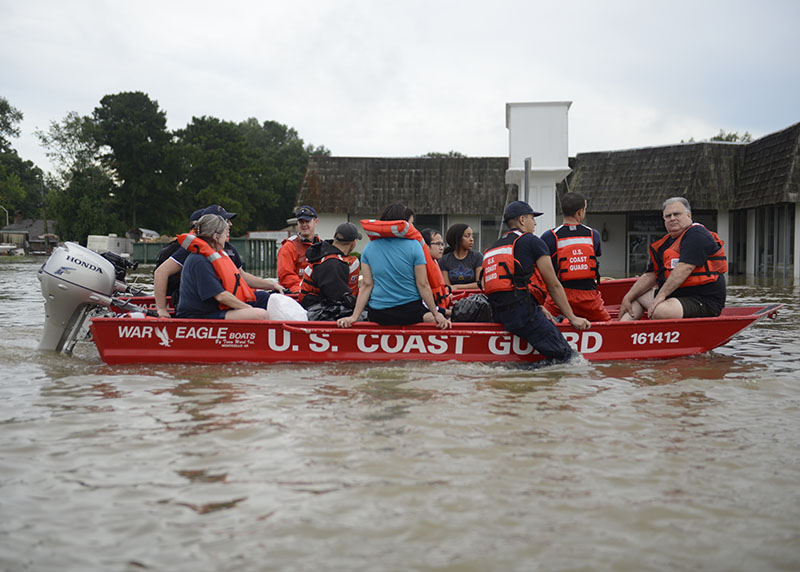It’s about 72 miles along Interstate 12 from my house in Mandeville, La., to my daughter’s apartment near LSU’s campus in Baton Rouge. There are a series of rivers between here and there that are usually so tranquil you barely notice them as you drive by. But when they come out of their banks on to the highway, they’re hard to ignore.
That’s what’s happened over the last three days in this area as some locations picked up over 21" of rain in 48 hours. All that water was too much for these rivers to swallow and they overflowed their banks into homes and businesses and over bridges and roads and Interstates 10 and 12.
Barry Keim, Louisiana’s state climatologist at LSU, said the low pressure system that caused all this “was a tropical storm or hurricane, only without the high winds.”
First responders went into action from the very first sign of trouble, rescuing hundreds of people from rooftops and from their cars. In the middle of it all was the Coast Guard, as usual.
There’s been a lot of barking recently about the Coast Guard because of the recent release of the Subchapter M final rule. Mariners often complain about the inexperience of some of the Coasties that inspect their vessels or the red tape that costs them time and money, but I’ve yet to hear anything but praise for their search-and-rescue abilities.
No, it’s not the drama of rushing into gale force winds and 25-foot seas to rescue a floundering vessel off the Atlantic coast. It’s when Coasties rescue a man who jumped from his truck seconds before it was swept away into the woods by floodwaters. You talk about a fast current.
All the first responders have done a terrific job over the last few days and the Coast Guard, with its experience and organizational skills, have again, like during Katrina, been a major part of it.




